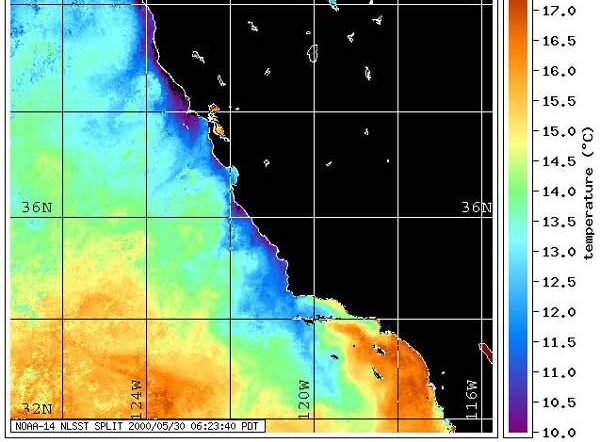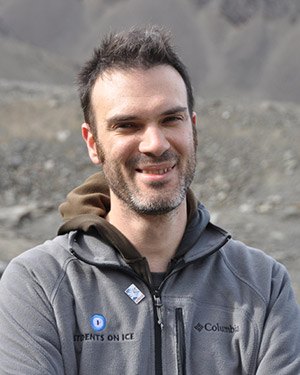
Assessing the Habitat Suitability of Plankton in the California Current System under Changing Oceanic Conditions
Increased levels of anthropogenic carbon dioxide (CO2) in Earth’s atmosphere have fundamentally restructured many marine ecosystems. As the atmospheric concentration of CO2 increases, more of the gas dissolves into seawater,…
Increased levels of anthropogenic carbon dioxide (CO2) in Earth’s atmosphere have fundamentally restructured many marine ecosystems. As the atmospheric concentration of CO2 increases, more of the gas dissolves into seawater, reacting with the water to form carbonic acid. The increase of carbonic acid in turn causes a decline in the ocean’s pH in a process known as ocean acidification. This phenomenon is occurring at an unprecedented rate, threatening coastal ecosystems, marine biodiversity, and public health; ocean acidification makes it difficult for marine organisms to form shells, contributes to the decline of suitable habitats, affects food webs, and broadly threatens coastal ecosystems. The California coastline is already suffering from the effects of ocean acidification, endangering its rich ecosystems and negatively affecting the marine food chains and local fisheries.
The Southern California Coastal Water Research Project (SCCWRP) is a team of scientists dedicated to understanding California’s oceanic environmental problems and researching potential solutions. SCCWRP’s research informs policy makers on the best practices for aquatic system management and protection. Our practicum team is working with SCCWRP to improve our understanding of the ecological impacts of climate change within California’s coastal waters, particularly its effect on organisms in the California Current system. We hope that by better defining the threat ocean acidification poses to our coastal environments and explaining observed biological patterns and responses to climate change our work will support efforts to protect California’s unique coastal resources.
Student Team: Laura Edwards, Maddie Wilson, Kobi Talma, Jin Han, Josiah Berkov-Kemp, Cammeo Gaviota, Faria Trisha, and Julianne Lea
Client: SCCWRP
Advisor: Professor Rob Eagle

